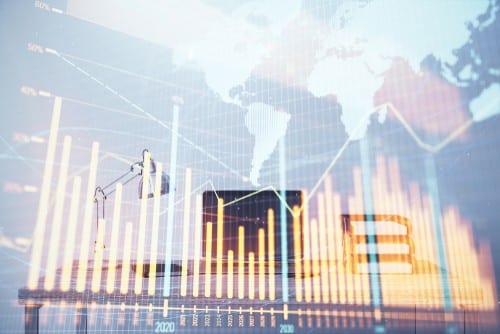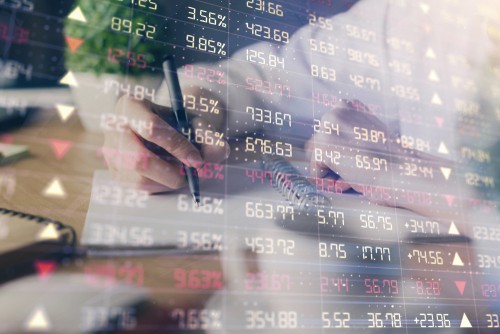Technology is shaping the world, and largely so, the financial markets have had a more significant share of it.
Our Forex Signals
1 - month
Subscription
 Up to 15 signals daily
Up to 15 signals daily 76% success rate
76% success rate Entry, take profit & stop loss
Entry, take profit & stop loss Amount to risk per trade
Amount to risk per trade Risk reward ratio
Risk reward ratiomonth
3 - month
Subscription
 Up to 15 signals daily
Up to 15 signals daily 76% success rate
76% success rate Entry, take profit & stop loss
Entry, take profit & stop loss Amount to risk per trade
Amount to risk per trade Risk reward ratio
Risk reward ratiomonth
 Most popular
Most popular
6 - month
Subscription
 Up to 15 signals daily
Up to 15 signals daily 76% success rate
76% success rate Entry, take profit & stop loss
Entry, take profit & stop loss Amount to risk per trade
Amount to risk per trade Risk reward ratio
Risk reward ratiomonth
Lifetime
Subscription
 Up to 15 signals daily
Up to 15 signals daily 76% success rate
76% success rate Entry, take profit & stop loss
Entry, take profit & stop loss Amount to risk per trade
Amount to risk per trade Risk reward ratio
Risk reward ratioSeparate Swing Trading Group
 Up to 3 signals weekly
Up to 3 signals weekly 76% success rate
76% success rate Entry, take profit & stop loss
Entry, take profit & stop loss Amount to risk per trade
Amount to risk per trade Risk reward ratio
Risk reward ratiomonth
1 - month
Subscription
 Up to 15 signals daily
Up to 15 signals daily 76% success rate
76% success rate Entry, take profit & stop loss
Entry, take profit & stop loss Amount to risk per trade
Amount to risk per trade Risk reward ratio
Risk reward ratiotime
Eightcap - Regulated Platform With Tight Spreads

- Minimum deposit of just 250 USD to get lifetime access to all the VIP channels
- Use our Secure and Encrypted Infrastructure
- Spreads from 0.0 pips on Raw Accounts
- Trade on the Award-Winning MT4 & MT5 Platforms
- Multi-jurisdictional Regulation
- No Commission Trading on Standard Accounts

Nowadays, if you’re looking to invest, you need to dig deeper into some research and come out with the best trading vehicle.
There’s a wide range of options, but the most suitable and alluring opportunities are between the futures and forex markets.
3
Payment methods
Trading platforms
Regulated by
Support
Min.Deposit
Leverage max
Currency Pairs
Classification
Mobile App
Min.Deposit
$100
Spread min.
Variables pips
Leverage max
100
Currency Pairs
40
Trading platforms
Funding Methods





Regulated by
FCA
What you can trade
Forex
Indices
Actions
Cryptocurrencies
Raw Materials
Average spread
EUR/GBP
-
EUR/USD
-
EUR/JPY
0.3
EUR/CHF
0.2
GBP/USD
0.0
GBP/JPY
0.1
GBP/CHF
0.3
USD/JPY
-
USD/CHF
0.2
CHF/JPY
0.3
Additional Fee
Continuous rate
Variables
Conversión
Variables pips
Regulation
Yes
FCA
No
CYSEC
No
ASIC
No
CFTC
No
NFA
No
BAFIN
No
CMA
No
SCB
No
DFSA
No
CBFSAI
No
BVIFSC
No
FSCA
No
FSA
No
FFAJ
No
ADGM
No
FRSA
71% of retail investor accounts lose money when trading CFDs with this provider.
Min.Deposit
$100
Spread min.
- pips
Leverage max
400
Currency Pairs
50
Trading platforms
Funding Methods




Regulated by
CYSECASICCBFSAIBVIFSCFSCAFSAFFAJADGMFRSA
What you can trade
Forex
Indices
Actions
Cryptocurrencies
Raw Materials
Etfs
Average spread
EUR/GBP
1
EUR/USD
0.9
EUR/JPY
1
EUR/CHF
1
GBP/USD
1
GBP/JPY
1
GBP/CHF
1
USD/JPY
-
USD/CHF
1
CHF/JPY
1
Additional Fee
Continuous rate
-
Conversión
- pips
Regulation
No
FCA
Yes
CYSEC
Yes
ASIC
No
CFTC
No
NFA
No
BAFIN
No
CMA
No
SCB
No
DFSA
Yes
CBFSAI
Yes
BVIFSC
Yes
FSCA
Yes
FSA
Yes
FFAJ
Yes
ADGM
Yes
FRSA
71% of retail investor accounts lose money when trading CFDs with this provider.
Min.Deposit
$50
Spread min.
- pips
Leverage max
500
Currency Pairs
40
Trading platforms
Funding Methods




What you can trade
Forex
Indices
Actions
Raw Materials
Average spread
EUR/GBP
-
EUR/USD
-
EUR/JPY
-
EUR/CHF
-
GBP/USD
-
GBP/JPY
-
GBP/CHF
-
USD/JPY
-
USD/CHF
-
CHF/JPY
-
Additional Fee
Continuous rate
-
Conversión
- pips
Regulation
No
FCA
No
CYSEC
No
ASIC
No
CFTC
No
NFA
No
BAFIN
No
CMA
No
SCB
No
DFSA
No
CBFSAI
No
BVIFSC
No
FSCA
No
FSA
No
FFAJ
No
ADGM
No
FRSA
71% of retail investor accounts lose money when trading CFDs with this provider.
However, all you need is first to understand what each of them entails and have a clear mind on their potential.
So, how do they differ?
The Forex Market
Due to differences in the exchange rates over the years, it gave rise to foreign exchange markets whereby traders speculate on changes in currency values or can as well hedge against the possibility of the depreciation of a currency.
Over the years, forex trading has grown in popularity, attracting a lot of folks. Forex trading got a boost in the 90s when retail forex traders got access to the market.
The Tricks in Forex Trading
A lot has indeed changed in forex, initially, when buying or selling currency, one had to direct a currency exchange operator or simply a major international bank.
However, as things stand, a trader only needs to open an account via a forex broker.
In forex, the currencies are usually traded in pairs, which means that when a trader buys one, simultaneously, it will be selling another.
Buying and selling of currencies can be done across the world. The currencies are directly traded and not I contracts, and “lot” is the term used in describing the minimum amount traded.
Also, in forex trading, the profit and loss are determined by the margin, dictating that any losses or gains can be higher than a trader’s initial investment.
Moreover, the forex markets operate 24 hours a day without closing; hence, the options/stocks in the forex can’t be manipulated. It’s also the most liquid market and, therefore, the desired destination for investors.
In terms of the commission fees, forex is much better as you only pay peanuts as compared to what you would pay in futures.
When buying and selling currency, the pairs don’t have to include the currency in the main forex account, for instance, a trader holding a GBP account can buy USD at the same time selling EUR.
Futures

Futures are merely a trading instrument, which means that their value is based on that of another asset, the underlying asset.
Unlike forex that is traded directly, futures are traded via contracts whose price is determined as per an estimated future value of an underlying asset.
Their origin from the commodities market, but now they can be traded for a plethora of assets, including bonds, commodities, currencies, and equities.
How Futures Work
Futures are bought and sold by contract, which can expire and are generally scheduled for expirations about four times or more per year.
After purchasing, the contracts can as well be bought as sold on the secondary market.
In the past, futures would be bought and sold and then delivered except some physical deliveries on particular commodities-related contracts.
Forex Futures
You don’t have to be surprised, yes, forex futures. Like other underlying assets, futures also can trade forex.
Like most futures, forex futures trading includes two parties that enter a contract trading one currency for the other for a special price on a specified future date.
The prices are arrived at by considering the carrying costs for borrowing as well as the purchase of the currency in question as well as possible investment earnings.
AvaTrade - Established Broker With Commission-Free Trades

- Minimum deposit of just 250 USD to get lifetime access to all the VIP channels
- Awarded Best Global MT4 Forex Broker
- Pay 0% on all CFD instruments
- Thousands of CFD assets to trade
- Leverage facilities available
- Instantly deposit funds with a debit/credit card

The Bottom Line
Depending on your financial trading goals, trading forex or the futures can come in handy.
The significant aspect is to define the one you’re comfortable with. For instance, forex trading is accessible and requires a small capital with limited exposure to long-term risks.
Furthermore, you can decide to use both trades simultaneously to multiply your output, but it requires a high level of experience.


